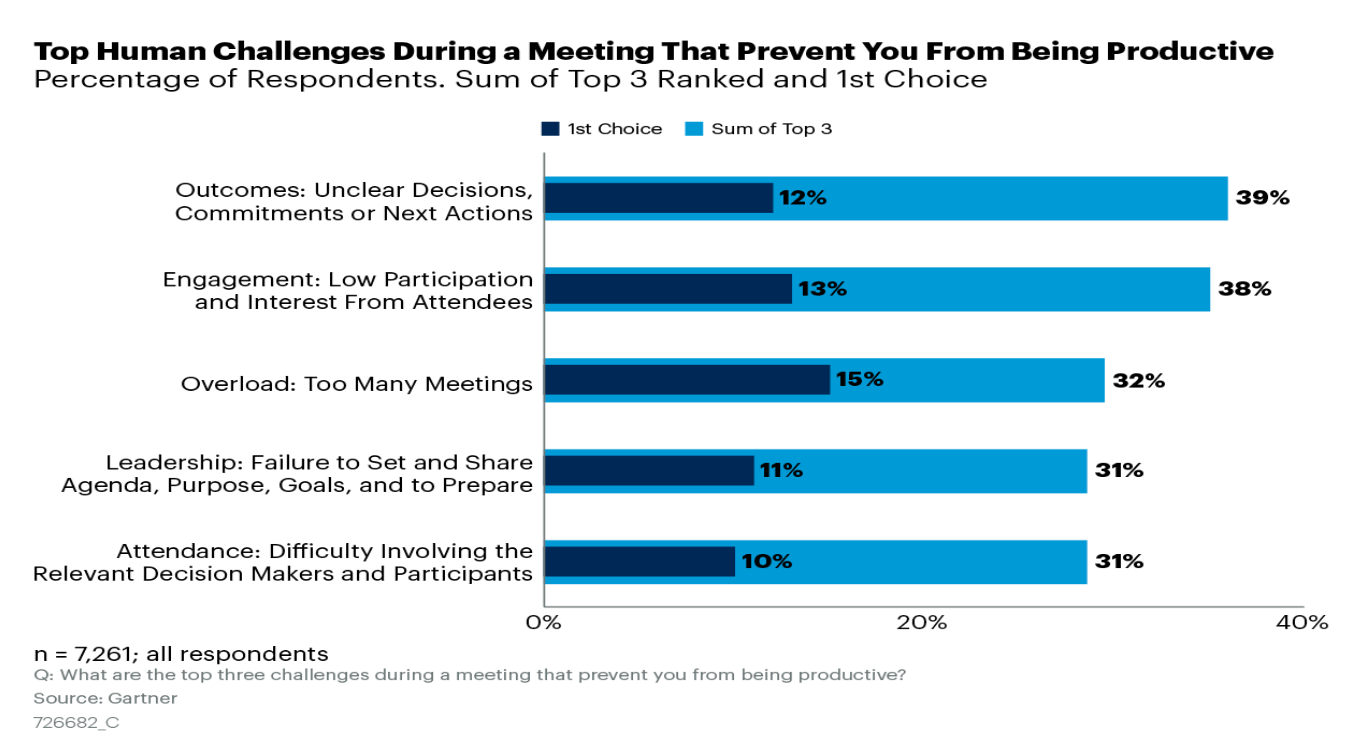New Paragraph
Meeting Best Practices
We spend so much of our work time in meetings both in person, via web
conference or some form of both.
We’d all agree that the ability to run good meetings is not widespread
or a skill set that comes easy to most people.
I’ve seen very little training and guidance in most organizations.
Top Meeting Challenges - Gartner

I can teach your staff how to run good meetings that always produce desired outcomes
It starts with establishing and communicating clear objectives.
Creating Agendas to support meeting the desired outcomes.
Providing Pre-read materials so that participants come prepared with
questions. Good meetings are not reading off a PowerPoint.
How to promote interaction.
How to make sure everyone gets a chance to be heard.
The value of starting and ending on time.
Meeting Fundamentals
– For the Organizer/Leader
Have an Objective(s) for every meeting (Specific outcomes per meeting; not just a
“status update”);
at least in your head, stated when possible and appropriate
Set the Agenda based on the Objective
Send out Pre-read at least a day ahead of time when applicable (tie your materials back to your objectives and agenda)
Additional Protocols

Make sure you regularly pause and ask for questions; even ask a question to encourage interaction. “No news is not good news” when it comes to meetings.
Document Action Items, open items with as specific details as possible; owner, date, action. Try and publish as quickly as possible after the meeting; track, address at next meeting
If you have no actions or decisions you probably didn’t have a good meeting
; think about why not
Manage the conversation in accordance with the objectives. If objectives are known to all participants this is made much easier and you can right the ship as needed.
Scheduling Best Practices
Online Calendars
- Keep yours up to date, respect others’ calendars too but reach out when conflicts present challenges; block non-meeting time (Free Fridays)
- The more notice the better; advanced scheduling; Recurring meetings
- Respond to invitations and if you say yes, show-up on time (RESPECT!)
Size matters
smaller meetings will provoke more interaction
Start on time; Finish on time
If you make this the norm it will condition people to be on time

